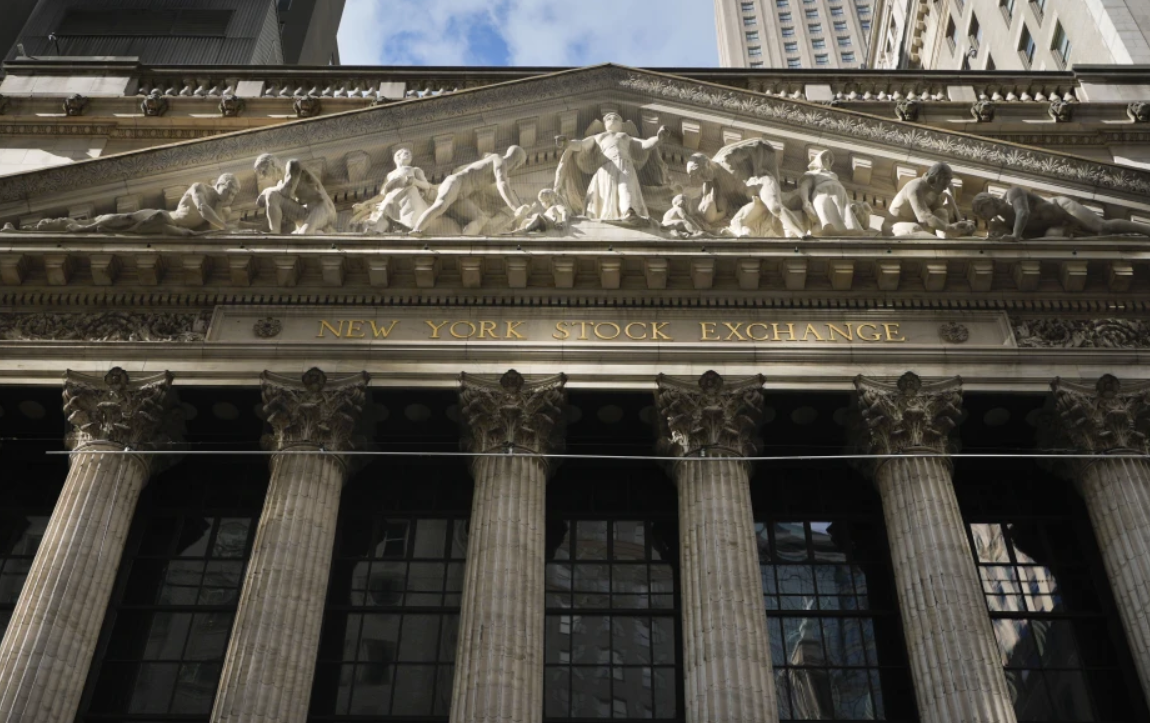U.S. stocks, bonds, and the value of the U.S. dollar showed little movement on Monday, following the latest indication that the U.S. government is heading toward an unsustainable level of debt.
The S&P 500 saw a modest increase of 0.1% in afternoon trading after Moody’s became the final major credit rating agency to strip the U.S. government of its top-tier “Aaa” rating. The Dow Jones Industrial Average rose by 168 points, or 0.4%, as of 1:09 p.m. Eastern time, while the Nasdaq composite also gained 0.1%.
Moody’s cited the growing borrowing needs of the U.S. government, which continues to increase its debt amid political gridlock that makes it hard to control spending or raise revenue to manage the debt. Although these issues have been long-standing, Moody’s rating change still stirred market reactions. Standard & Poor’s lowered the U.S. credit rating back in 2011.
Analysts, including Brian Rehling from Wells Fargo, suggested that the market had likely already factored in these debt concerns. Therefore, they anticipated limited impact from the downgrade. Stocks and U.S. government bond prices initially dropped but regained some ground as the day progressed.
The downgrade raises concerns about the cost of borrowing for the U.S. government, which may need to offer higher interest rates on bonds to attract investors. The yield on the 10-year Treasury bond briefly surged above 4.55% on Monday, before dropping back to 4.49%. Similarly, the yield on a 30-year Treasury bond climbed above 5% before retreating. These increases in borrowing costs could lead to higher interest rates for households and businesses in the U.S., potentially slowing down economic growth.
The downgrade also adds to existing concerns about the U.S. economy, such as the ongoing trade war under President Donald Trump. The tariffs imposed on China have raised questions about the safety of U.S. bonds and the U.S. dollar, which were once considered safe havens during crises.
Despite these pressures, the U.S. economy has remained relatively stable, although large companies are becoming more cautious. Walmart, for example, warned that it may need to raise prices due to tariffs, drawing criticism from Trump. Walmart’s stock dipped 0.1% on Monday.
Other major retailers, including Target, Home Depot, Lowe’s, and TJX Cos., are set to release their quarterly results later this week.
On a positive note, biotech company Novavax saw a significant 19.4% rise in its stock price after receiving approval from U.S. regulators for its COVID-19 vaccine under certain conditions. This approval triggered a $175 million milestone payment under the company’s partnership with Sanofi.
International markets were mixed, with modest movements across Europe and Asia. Chinese retail sales growth for April fell short of expectations, and industrial output growth slowed. In currency markets, the value of the U.S. dollar declined against various global currencies, including the euro and Australian dollar.














